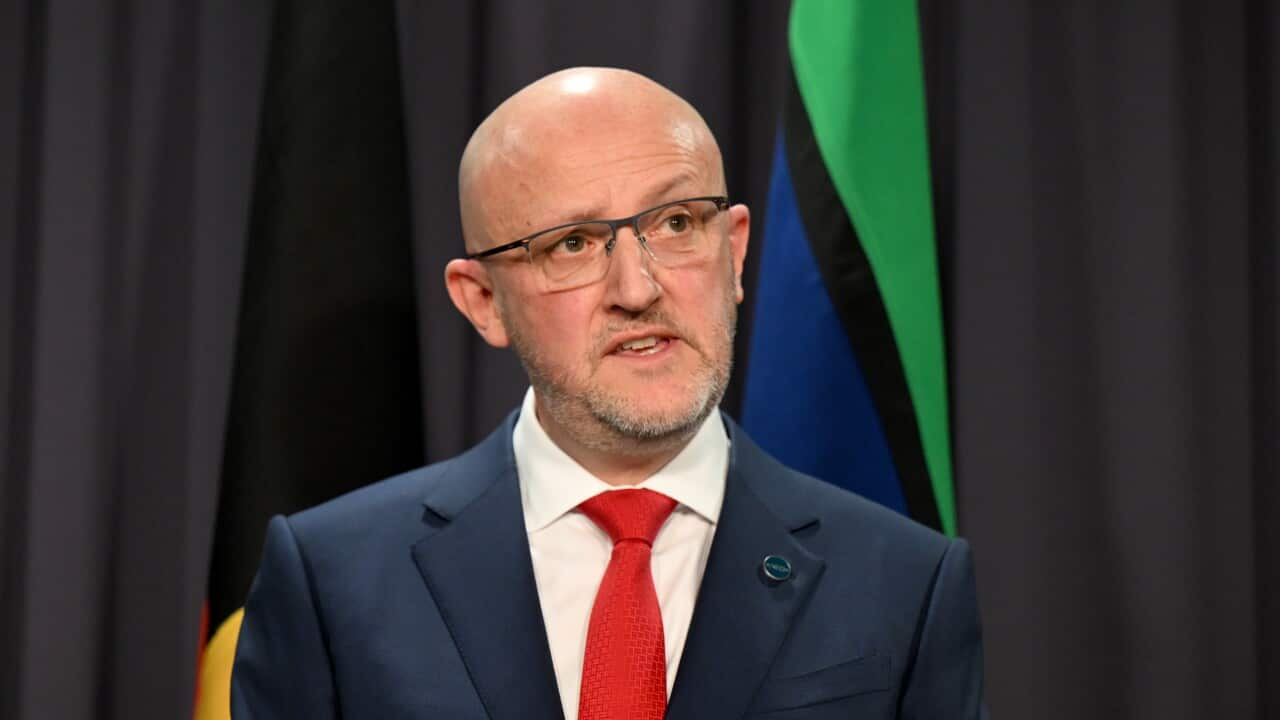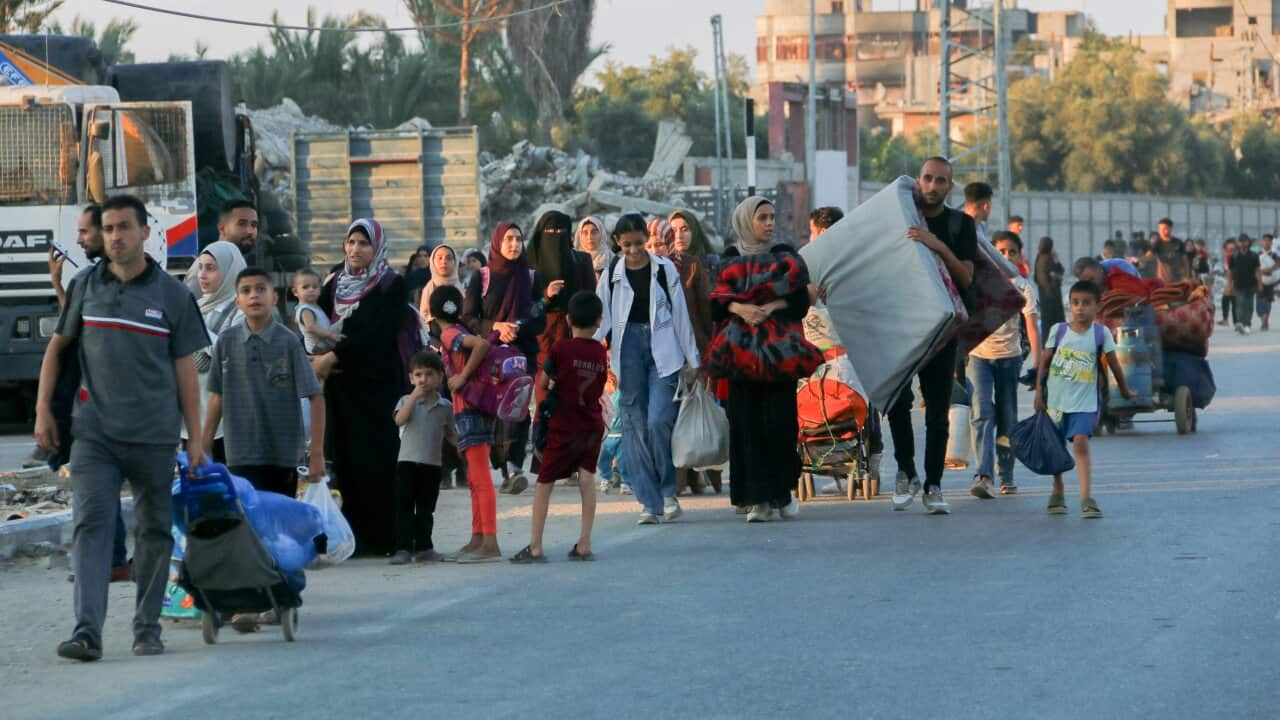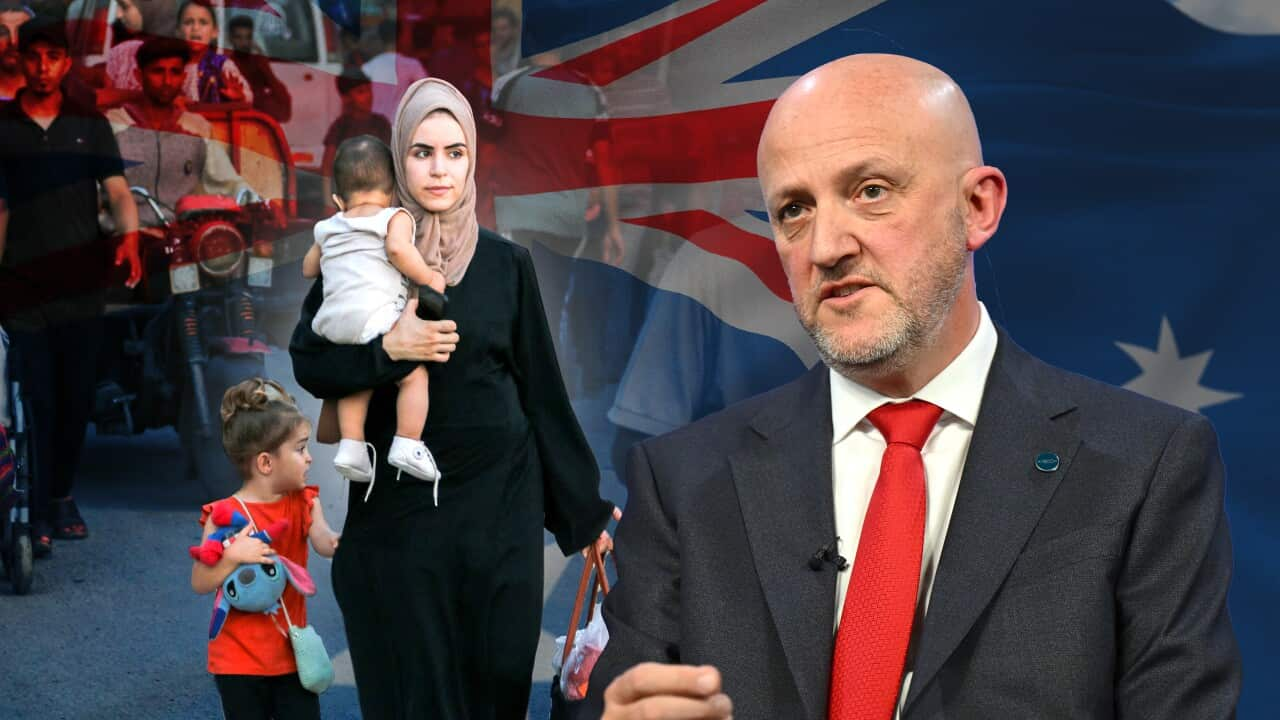Key Points
- ASIO director-general Mike Burgess said his comments regarding visa vetting for Palestinians fleeing Gaza were skewed.
- Burgess first made comments in August that "rhetorical support" was different to material support for Hamas.
- Burgess has now clarified that online support for Hamas' October 7 attacks would be a "problem" for applicants.
The director-general of the Australian Security Intelligence Organisation (ASIO) says his comments on the vetting process for Palestinians fleeing Gaza had been skewed as the debate over people entering Australia from war-torn Gaza continues.
Speaking on the ABC's Insiders program in August, Mike Burgess said that Palestinians applying for Australian visas who have expressed "rhetorical support" for Hamas should be considered differently from those who have provided Hamas with financial support or material aid.
Burgess said that some Palestinians may express support for Hamas because they "want their homeland".
"If it's just rhetorical support, and they don't have an ideology or support for a violent extremism ideology, then that's not a problem," Burgess said.
Burgess' comments sparked controversy amid the continuing fight between the Albanese government and the Opposition over visas for people fleeing from Gaza.
In an interview to be aired with the ABC's 7.30 program, Burgess said these comments had been misrepresented and distorted in the weeks since.
Burgess said ASIO focuses on questions of whether a person may be a direct or indirect threat to security and may be submitted for an adverse security assessment.
He also said online support for Hamas would also be inspected and that expressing support for Hamas' October 7 attack on Israel would "be a problem".
"I said that if you support a Palestinian homeland that may not discount you because that by itself is not a problem," he said.
"But I also said if you have a violent extremist ideology, or you provide material or financial support to a terrorist organisation, that will be a problem."
Burgess also commented in the 7.30 interview about criticism of his transparency regarding ASIO's decision-making.
"You have to explain the threats to the people you protect, not just tell the government," he said.
Debate over visas continues
Last month, , claiming it put Australia's "national security at risk".
Dutton said Burgess' comments on Insiders were concerning.
"I just think every Australian would be shocked to think that the government's bringing in people from a war zone and that ASIO is not conducting checks and searches on these people," he said.
and pointed to civilians not being able to leave Gaza since May, after the Rafah crossing had been closed.
Australia Palestine Advocacy Network president Nasser Mashni labelled Dutton's comments "another glaring example of the abhorrent and increasingly normalised brand of racist politicking designed to stir up fear and hatred against the Palestinian people."
Following Dutton's comments, Opposition immigration spokesman Dan Tehan said Albanese needed to clarify whether people who backed Hamas would be allowed into Australia.
"We were deeply concerned about the level of security checks which were taking place," Tehan told Sky News. "It was unprecedented that people were coming from a war zone governed by a listed terrorist organisation on tourist visas."
More than 1,200 Israelis were killed when Hamas militants launched their October 7 attack, according to Israeli figures.
About 40,000 Palestinians have been killed in the nearly 11 months since Israel's retaliatory assault on Gaza, according to the health ministry in the enclave.
Home Affairs figures released in August showed Australia has rejected the majority of visa applications by Palestinians fleeing Gaza.
From the October 7 attack by Hamas to 12 August, the government rejected 7,111 visa applications and granted 2,922.
Over the same period, 8,746 visas were granted to Israeli citizens while 235 visa applications were rejected.











